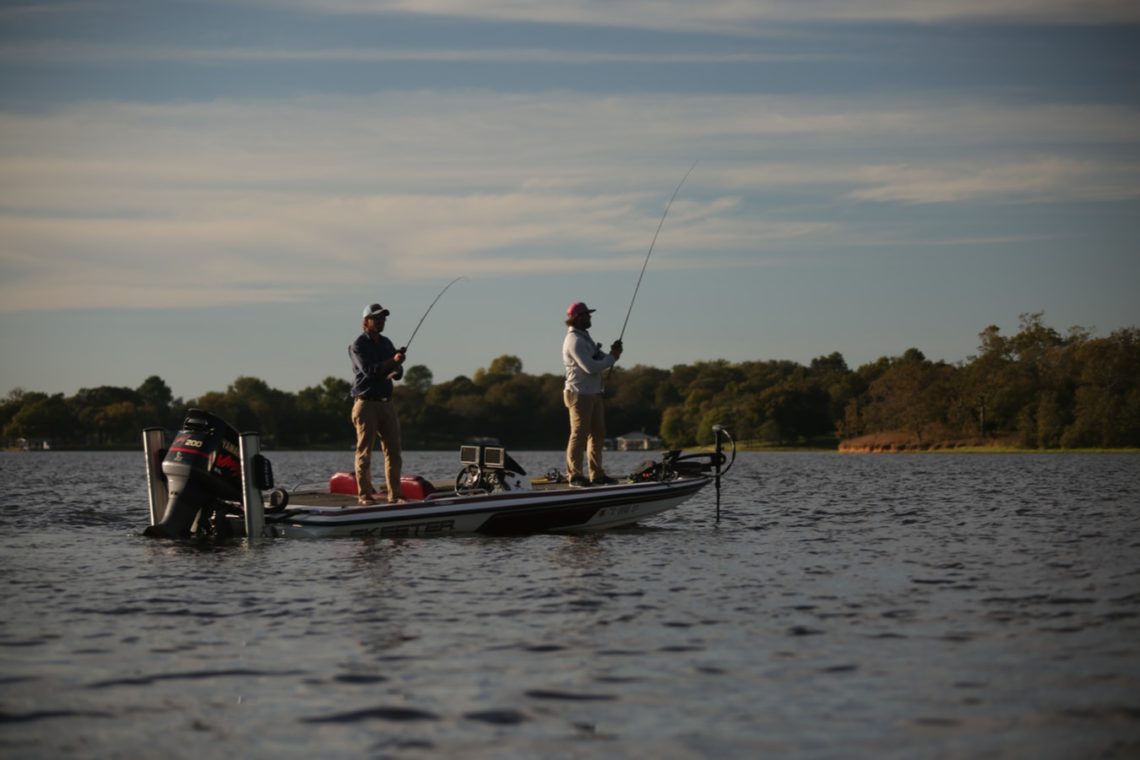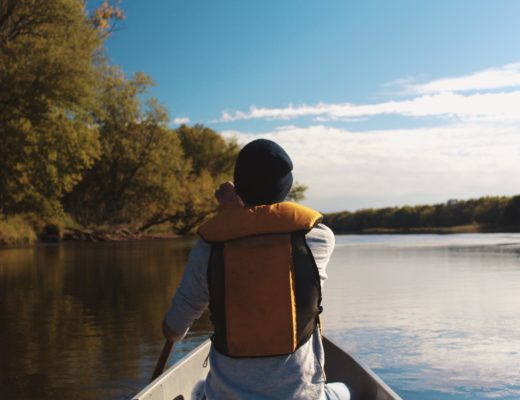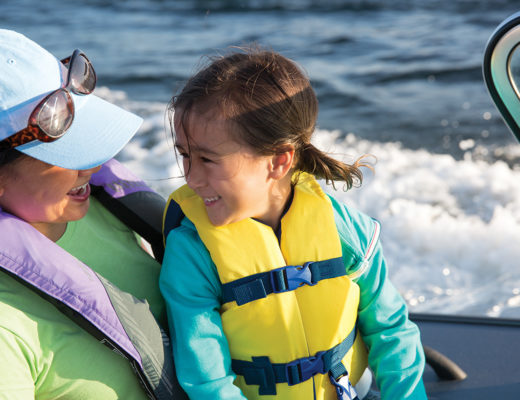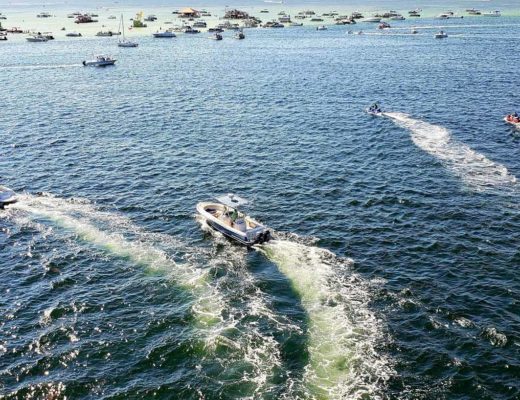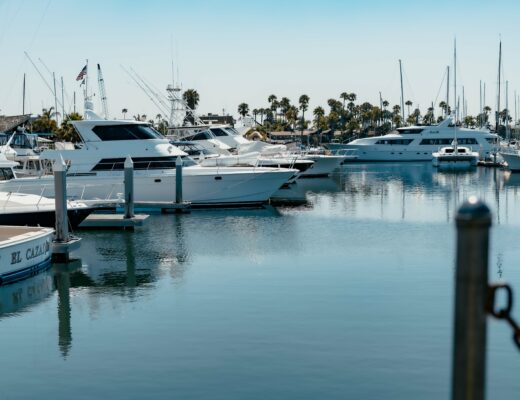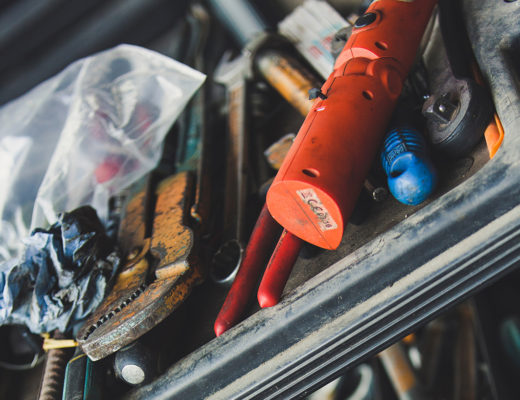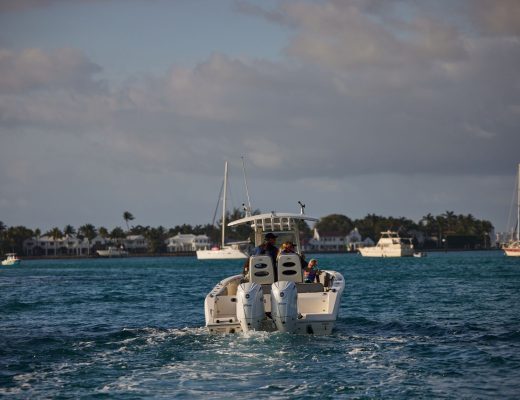Hunting and fishing are sports with various safety rules and regulations.
However, participants in these sports must remember that when they’re hunting or fishing from a boat, they’re considered boaters and must also follow the rules and regulations for safe boat operation.
So, before you head out on your fishing boat or take a boat out for a duck hunt, check out our top safety tips for hunters and anglers when boating.
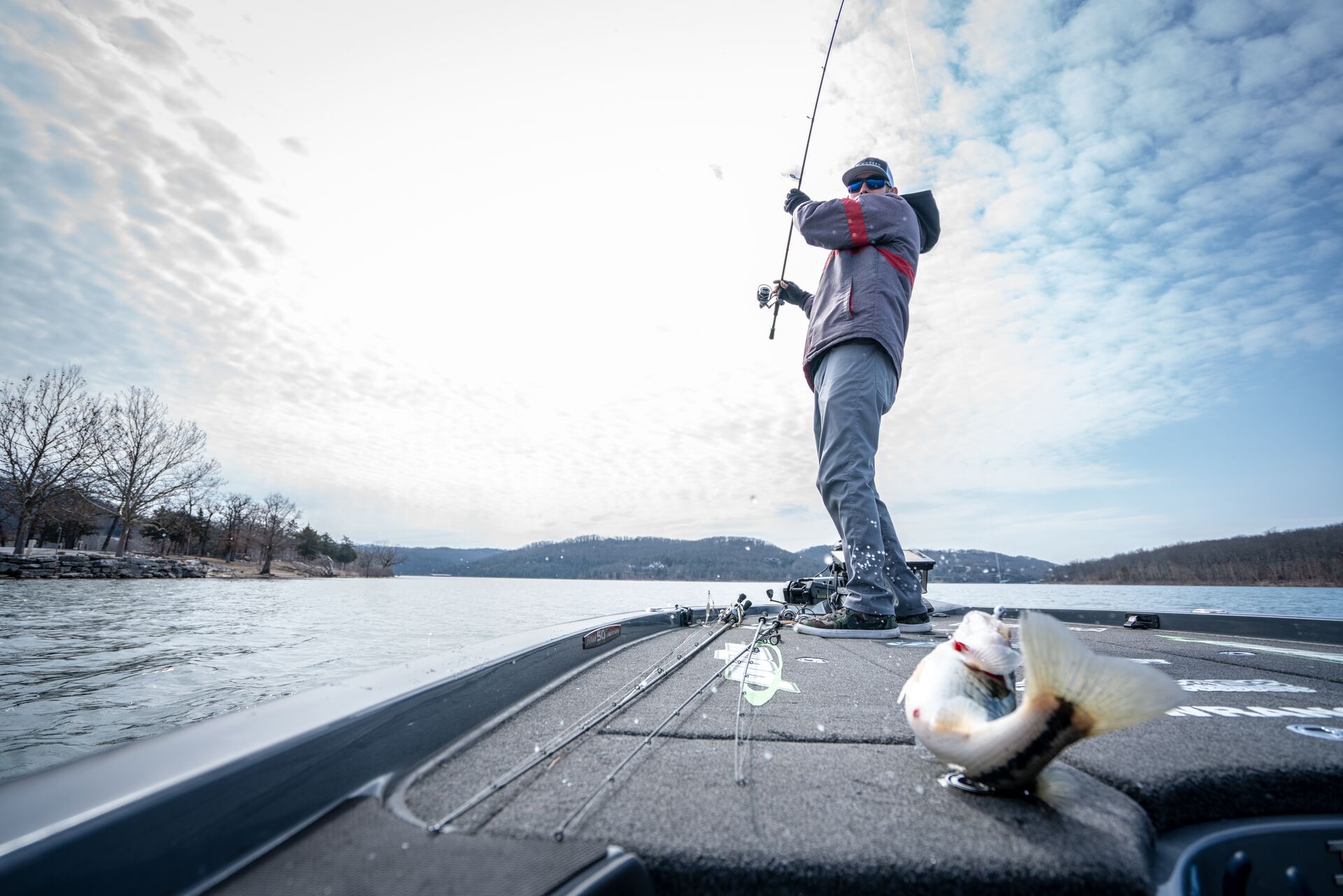
Accident Risks for Hunters and Anglers
Many boating-related fatalities occur on trips involving fishing activities.
Additionally, fewer hunters and anglers die each year from sport-related gunshot wounds than from drowning, hypothermia, and the effects of cold water shock.
So, if you participate in these sports that take you onto or near the water, you just can’t ignore facts like these.
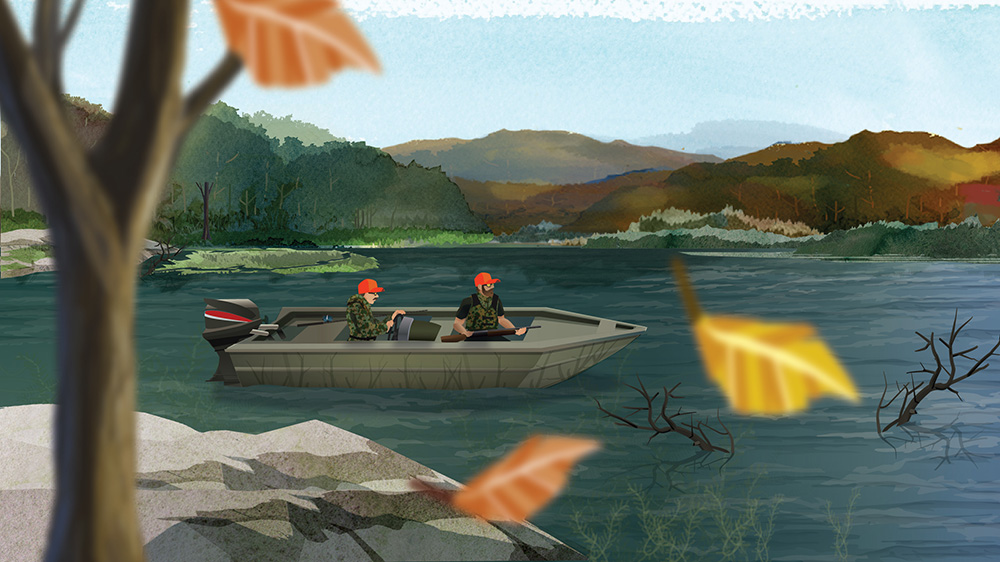
If you plan on hunting or fishing from your boat, you must recognize the following accident risks that are unique to those sports:
- Falling overboard: This is a high risk because hunters and anglers frequently stand up in their boats to cast a line, take aim, or reach for a decoy. Stay seated to stay stable!
- Overloading the boat: Combining heavy sporting gear or an unbalanced load with passengers frequently moving around in the boat increases the risk of capsizing substantially.
- Boat Types: Hunters and anglers often use flat-bottom boats and paddle craft to drift quietly into their hunting or fishing areas. These smaller boat types tend to be unstable, making them more likely to capsize than larger motorboats.
Being aware of these risks can help you reduce the potential for a boat capsizing or falling overboard while hunting or fishing.
The Best Safety Tips for Hunters and Anglers
- Always wear your life jacket. They’re available in camouflage colors!
- Go hunting or fishing in groups. (There is safety in numbers).
- Complete a Float Plan and leave it with a responsible person on shore.
- Keep a lookout for obstacles and other boaters — not just that trophy buck or a flock of geese!
- Carry first aid supplies, extra clothing, and safety gear that’s appropriate for the weather conditions.
- If you plan on being in cold water areas, wear an immersion suit to prevent hypothermia.
- Never overload your boat and always balance the weight load before getting underway.
- If you’re out for a long trip, fill your day pack with re-sealable plastic bags. They’ll keep your small equipment, snacks, and supplies dry.
Sealable plastic bags also act as air pockets to help keep your pack afloat if you accidentally drop it overboard.
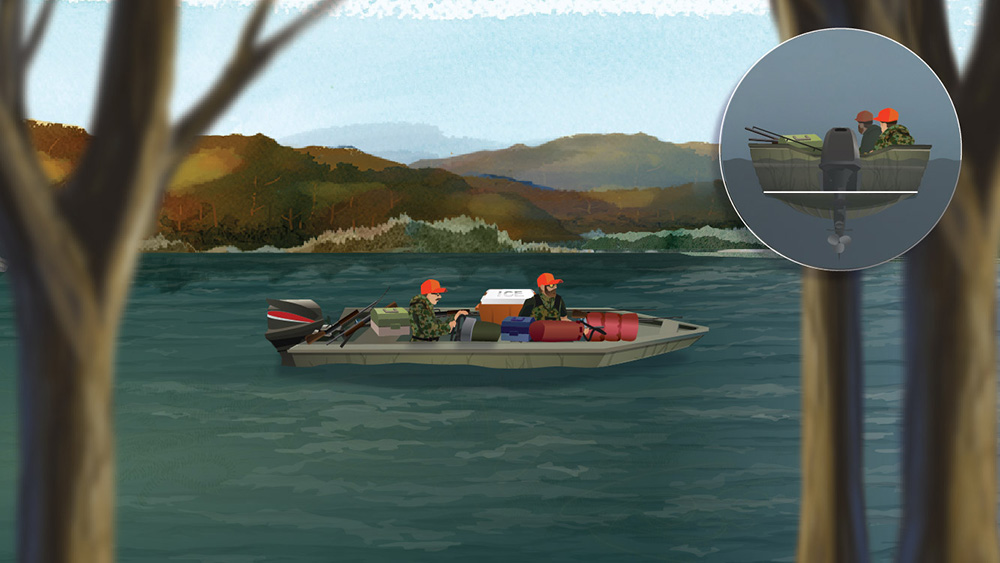
Bonus Safe Boating Tip
If you have a hunting dog in your boat, make sure the dog is trained for hunting. If it gets excited or startled by the sound of a gunshot, the dog might jump out of the boat, which would destabilize it and potentially cause a capsizing emergency.
The Best Safety Tip: Anglers and Hunters Should Take a Boating Safety Course
We’ve shared some good boating safety tips for anglers and hunters today, but the best thing you can do to stay safe on the water is to take a boating safety course.
BOATsmart! offers online courses (that are fun and engaging) to help anglers and hunters learn safety essentials so every fishing or hunting trip is a success (even if you don’t bring home that catch or geese you’re after).
So, before heading out for a fishing trip or a hunt on the water, choose the U.S. course that applies to your state. Or, if you fish and hunt in Canada, sign up for our Canada course and start learning!
Originally published in April 2019. Content most recently reviewed and updated for accuracy and relevancy September 27, 2024.
